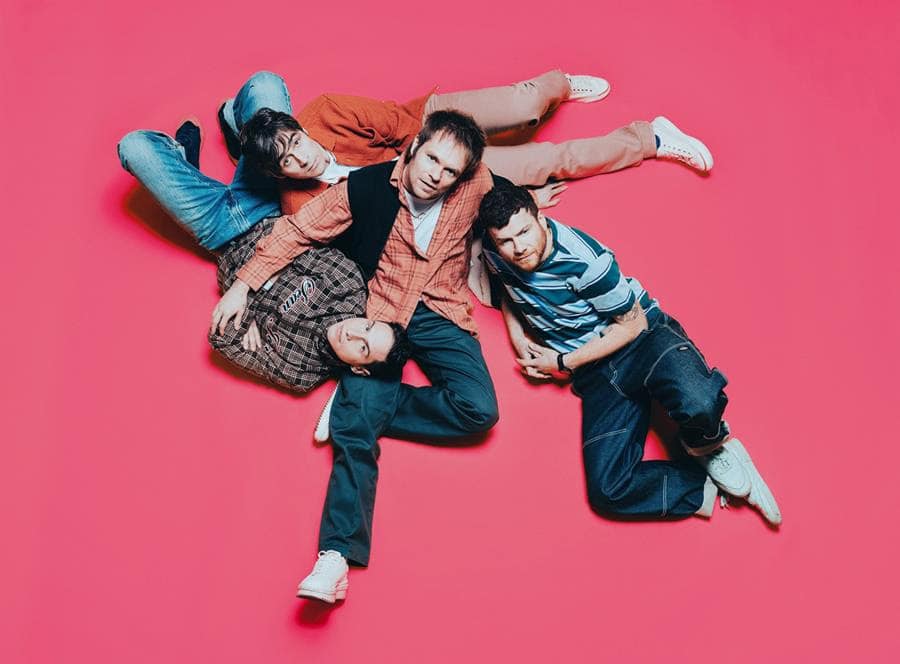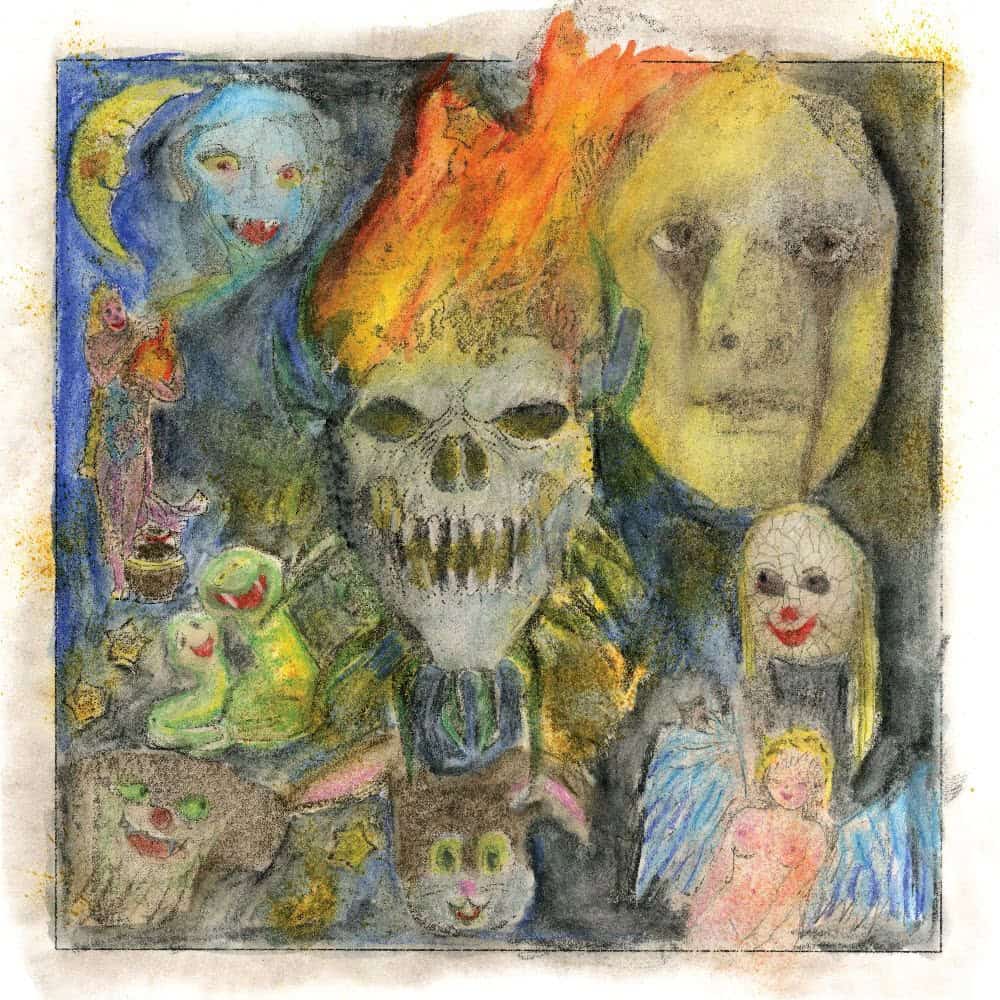In the second part of her evocative debate, SPHERE’s Faye tackles brand management within the music industry.
Aside from the difficulties of providing an edge of pop-punk perversity into the otherwise squeaky clean charts – it is not artists who are feeling the pressures of the change in music consumption – but big music management companies.
As many of the major music companies struggle with the transition from CD sales to distribuing music digitally they have had to make drastic company changes to stay afloat.
In an attempt to accelerate the movement of EMI into the golden age of digital downloading, Guy Hands, who bought EMI in 2007 at a cost of more than $6 billion through his private equity firm Terra Firma has recruited the help of a number of senior executives with extensive digital experience to cope with the rapid way in which consumers buy music.
This includes Cory Ondrejka, the co-founder of the company behind the virtual world Second Life, who has been appointed to the new position of senior vice-president of digital strategy.
EMI, which has housed some of the biggest artists of all time, with a back catalogue that reads like a who’se who in Rock’n’Roll history – The Beatles, The Rolling Stones, Pink Floyd, Radiohead, David Bowie and Coldplay (to name but a few) – is just one company which was taken private last year, that intends to reduce the number of acts on its roster, finding new revenue models and investing in new ways of marketing and distributing music to replenish falling revenue streams within the company.
And one of the first things to happen was that in 2007 EMI made a deal with iTunes and allowed it to offer a number of songs to consumers.
Ondrejka’s appointment followed the hiring of Douglas Merrill, formerly one of Google’s most senior executives, as president of its digital business – who replaced Lauren Berkowitz the former head of digital development for EMI North America in 2008.
Both Merrill and Ondrejka are now set to embark upon pushing the company forward and utilising technology to make it easier for people to find and consume music by artists they like.
In an interview with The Guardian in June, Merrill said of Ondrejka’s appointment: “His unique experience building online environments, like Second Life, will be invaluable to EMI Music as we create new digital communities for fans and artists.” With the construction of ‘new digital communities’ further modernising stratergies to advance with the new epoch of music downloading in the industry, the general public are showing new levels of understanding towards downloading.
Particularly amongst a young demographic driving consumer demand for the latest trend in downloading in the commercial music sector, there raises the question if there should be a new way of instilling values for creative content – particularly due to the increase in websites dedicated to streaming and illeglal file sharing.
There are an increasing number of ways to purchase and download music on the internet, but for the most part the last few years has been riddled with confusing parameters of usage restriction.
One of the main problems is the issue of ‘stealing’ music by downloading illegally. In a rant on YouTube, musician Kid Rock takes a sarcastic stance on illegal downloading saying: “Just do it.” In the rant, Rock smiles, and admits: “I’m rich, so sure it’s OK to steal my music. Oh, and while you’re at it, steal everything. Steal an iPod, Steve Jobs is a billionaire, he’ll never miss it.”
“Get yourself a Toyota, they’re foreign and the gas too, you know how much money the oil companies make? They’re not going to miss $30 or $40 worth of gas.”
Rock’s hyperbolised outburst on the issue is one that is actually quite simple – illegal downloading is stealing. And at the end of the video he takes a long drag on his cigar and adds: “Buying an iTune certainly isn’t stealing, but it doesn’t make a lot of sense,”
 In June, 2008, the long-awaited album Chinese Democracy by Guns’n’Roses made headlines after being leaked onto the internet ahead of its completion.
In June, 2008, the long-awaited album Chinese Democracy by Guns’n’Roses made headlines after being leaked onto the internet ahead of its completion.
According to Last.fm in June, some “Mulder and Scully types” from the FBI decided to pay a visit to the man responsible for the leak, Kevin Skwerl, after they reportedly received a complaint from front man Axl Rose.
Nine tracks from the album were reportedly released via the website Antiquiet.com in their finished state, and a legal order was imposed to force the removal of tracks from the site.
Interestingly, before the FBI intervened (!) six tracks had already made their way in various forms of completion onto the site YouTube – arguably the fastest way to grab the attention of millions of fans worldwide.
For artists whose names carry less gravitas than that of the inexorable Axl Rose – who may not have the FBI on hand to step in when they find their music leaked – the prevention of illegal downloading has proven to be highly difficult to control; and other preventatives have been put in place to manage the way music is consumed.
Until recently, many music services have employed Digital Rights Management (DRM) to prevent such actions as remixes from downloaded music, or choosing which portable outlet to play music through. Known as ‘copy protection’ – DRM meant that under the Digital Millenium Copyright Act (DMCA) those people distributing the tools to break DRM could be held accountable to liability – whether or not they were making illegal uses.
For example, under DRM, iTunes Music Store has the power to impose a number of restrictions on the consumer including making back up copies, in which a song can be confined to 5 computers. It also has the power to limit the playing of a song to an ipod only, and does not allow editing, or the sampling of songs.
The restrictions are not only attributed to iTunes however, but also to devices like Napster. The once renegade service out there to provide music lovers with a way of peer-to-peer sharing – now offers a subscription based approach alongside permanent purchases.
In the case of Napster, so long as the user subscribes to the service, they are able to download an unlimited amount of music encoded to Windows Media Audio (WMA) – until a paymet is missed. When this happens all music is rendered unusable. Napster also requires users to pay an additonal $0.99 per track to burn them to a CD or to listen to the song after an expired subscription.
But what is the real effect of DRM? From 2007 onwards, DRM has been noticably less common, and many major labels have opted to release music without the worry of rights piracy.
Apple’s Steve Jobs, in an open letter on Febuary 6, 2007 entitled ‘Thought’s on Music’ called on the music industry to eliminate DRM saying: “Imagine a world where every online store sells DRM-free music encoded in open licensable formats. In such a world, any player can play music purchased from any store, and any store can sell music that is playable on all players. This is clearly the best alternative for consumers, and Apple would embrace it in a heartbeat.
“So if the music companies are selling over 90 percent of their music DRM-free, what benefits do they get from selling the remaining small percentage of their music encumbered with a DRM system? There appear to be none. If anything, the technical expertise and overhead required to create, operate and update a DRM system has limited the number of participants selling DRM protected music. If such requirements were removed, the music industry might experience an influx of new companies willing to invest in innovative new stores and players. This can only be seen as a positive by the music companies.”
Steve Jobs further complains that much of the resistance over DRM has arisen from European countries, and in 2007 Musicload.de, one of Europe’s largest online retailers positioned itself strongly against DRM, stating that one in every four calls to their customer support phone service was the result of consumer frustrations with DRM.
And it seems like DRM is not officially dead yet, with some companies still preferring the use of it on their products. Head of Digital at Polydor, Paul Smernicki defended the stance taken by major labels to use DRM, saying: “To open the floodgates doesn’t seem like the thing to do, DRM will become more crucial to our industry because are now models that are not a-la-carte based that are going to launch this year.”
Despite this, the US has become mostly DRM free and this trend is one that seems to have made its way to the UK.
In 2007 Shoreditch based company; 7Digital hit the headlines after striking a deal with iPod or MP3 player, refreshing the playlists with new music whenever the device is reconnected, and in turn simplifying the process of filling a portable device.
It seems that although previous outbreaks of optimism in downloading may have proved misguided, wih the introduction of changes in technology plans have been given a new impetus in record time.
And as of March last year Filter also showcased the development for advancing mobile music, after it unveiled the latest version of their playlist creation software for Nokia Phones.
According to an official Nokia press release in June, Warner Music agreed to a marketing collaboration with Nokia for the ‘Comes with Music’ programme. Warner Music will also have its catalogue available in Nokia Music Stores.
Jay Durgan, Senior Vice President Marketing, at Warner Music International commented: “Warner Music International are very pleased to be involved in this new marketing collaboration with Nokia, the world leader in mobile communications. Moreover, Nokia’s and WMI’s shared interest in providing a legal, efficient and easy means for consumers to preview artists and their music is most gratifying and has enormous potential.”
It seems the affiliation between Warner and Nokia has stumbled across a new way of making money – through the useful trajectory of combining resources to produce one super power.
“Music is a part of our everyday lives and the Nokia 3300, allowing users of the popular streaming site to buy songs from 7Digital within the Last.fm domain. Later that year, it confirmed that unsurprisingly, DRM songs were outselling DRMed versions at a rate of four to one.
In an interview with CNET.co.uk in January, 2008, 7Digital’s CEO Ben Drury said the company had plans to offer the same service in the US as was currently available in the UK. He also expressed an interest in the Mobile downloads market saying: “We’ve been looking at the mobile market for four years now.” – Following on from the success of ‘the crazy frog ring tone’ however, I will remain sceptical about unleashing mobile phone downloads into the charts.
According to the Telegraph reporting in June, Amazon executives are connecting its DRM free music service in the UK.
The online music shop launched in the US in 2007 already offers around 5 million MP3 music tracks from the four major music labels that Apple were unable to snare – Universal, Sony BMG, EMI and Warner.
Amazon sees this as a significant advantage over Apple’s iTunes which currently only offers DRM free tracks from EMI.
Amazon hope to undercut the price of Apple’s fee for downloading tracks whilst lso rivaling popular UK sites play.com and HMV.
Gennaro Castaldo, a spokesperson for HMV commented on why he thought music downloading has become so popular, attributing the success of digital downloading to: “Versatility and convenience.” – Something which Amazon’s American site has already proven to work, offering high quality MP3’s at a lower price than iTunes and all without the baggage of iTunes DRM software. Castaldo also believes that the younger market of music downloader’s is important to target, saying: “There’s a changing way that music fans are discovering and consuming music via the Internet, especially among younger age groups.”
Although Castaldo defends consumers accessing music via the internet, he is under no illusions about the challenges it faces and one of the problems with this is the ‘huge growth and ‘kudos’ of illegal downloading.’ He admits that there is still the issue of ‘massive promotion and popularity of Apple iTunes service,’ which makes it difficult for other companies to break into a market that is still dominated by Apple.
On the plus side for HMV Castaldo felt that the “restrictions of DRM are ‘gradually disappearing’ and admits that its ‘an inevitable trend’ that competitors such as Amazon are releasing DRM free music, revealing that HMV also plan to jump on the bandwagon and release DRM music from this summer onwards.
So has the penny finally dropped with the trend to release DRM free music in the industry? It seems as though the fashion is to remove DRM on permanent music downloads.
As HMV have announced their plans in effect from this summer, so have Amazon (US), which will be released to the UK and the rest of the world later this year, and even Apple have started to increase the number of tracks which are DRM free. – Something they may need to do as the rest of the industry catches up.
 So where does that leave the future of music downloading? In recent years the conflict between artists and downloading sites seem a thing of the past – even Peter Gabriel is one half of a joint venture with Eden Ventures to fund The Filter; a client based recommendation engine for iTunes and Windows Media Player that can build instant playlists based on one or more tracks. And it doesn’t end there, as the software also enables similar musical reccomendations from the iTunes StoreAmazon and eMusic stores.
So where does that leave the future of music downloading? In recent years the conflict between artists and downloading sites seem a thing of the past – even Peter Gabriel is one half of a joint venture with Eden Ventures to fund The Filter; a client based recommendation engine for iTunes and Windows Media Player that can build instant playlists based on one or more tracks. And it doesn’t end there, as the software also enables similar musical reccomendations from the iTunes StoreAmazon and eMusic stores.
In January 2007 The Filter also provided the previously untapped potential for automatically syncronising new playlists to an iPod or MP3 player, refreshing the playlists with new music whenever the device is reconnected, and in turn simplifying the process of filling a portable device.
It seems that although previous outbreaks of optimism in downloading may have proved misguided, wih the introduction of changes in technology plans have been given a new impetus in record time.
And as of March last year Filter also showcased the development for advancing mobile music, after it unveiled the latest version of their playlist creation software for Nokia Phones.
According to an official Nokia press release in June, Warner Music agreed to a marketing collaboration with Nokia for the ‘Comes with Music’ programme. Warner Music will also have its catalogue available in Nokia Music Stores.
Jay Durgan, Senior Vice President Marketing, at Warner Music International commented: “Warner Music International are very pleased to be involved in this new marketing collaboration with Nokia, the world leader in mobile communications. Moreover, Nokia’s and WMI’s shared interest in providing a legal, efficient and easy means for consumers to preview artists and their music is most gratifying and has enormous potential.”
It seems the affiliation between Warner and Nokia has stumbled across a new way of making money – through the useful trajectory of combining resources to produce one super power.
“Music is a part of our everyday lives and the Nokia 3300 brings together technology and music in an innovate and appealing package. Working with Warner Music International we can create possibilities for fans to enjoy music and personalize their mobile devices in a whole new way, with extra content such as a wallpaper or True tone ring tone from your favourite artist, “said Ilkka Raiskinen Senior Vice President, Entertainment and Media Business Unit, Nokia Mobile Phones.
The calculation that music and phone sales are as popular as ever in consumer culture presents the perfect opportunity to see – naturally – the public relation possibility – a marriage made in heaven, to explore the seamless combination of music with mobile phones.
And Nokia are not alone in their endeavours to snare deals with music companies. In an article on businessofcinema.com posted in June, Orange announced plans to launch Rock Band, the market’s fullest unlimited music download service for PC and mobile, from the 12 June in France.
Orange plan to make over a million titles available for downloading, having buddied-up with France’s top four music majors EMI Music France, Sony BMG, Universal Music France and Warner Music as well as two independent labels Believe and Scorpio Music.
The benefits of this ‘relation douillet’ are that the titles downloaded through Musique Max can be stored for an unlimited period and transferred to different digital media such as compatible mobiles and music players. – All for only €12 per month.
Musique Max is the latest venture in Orange’s worldwide content approach to downloading. Thought it already has the backing of EMI Music France, Sony BMG, Universal Music France, Warner Music France, Believe and Scorpio Music, Orange still plans to expand its line by adding other labels in order to satisfy the growing demands for consumers’ desire for digital media on their mobile’s.
At the crux of this is the opportunity for Orange internet customers – despite their mobile operator – to enjoy several capabilities by proxy through the orange network.
According to the Orange website, it entitles users to download up to a maximum of 500 tracks a month to PC’s and phones and more unusually, for a subscription service enables users to for a subscription service, they will then be able to keep all tracks “for life”.
In an interview with musicweek.com on June 12, EMI Music France president Nathalie Collin explained that with the business model for music in upheaval, it is essential for EMI to take a pro-active approach with its partners.
So, as companies rapidly transform themselves from two – revenue streams of physical retail sales and radio – to one of numerous digital channels, it looks as though mobile phones are the next venture in the world digital music downloading.
In the long term the ambition is bold: to produce and sustain symbiotic relations between music and mobile.
Cynics may feel that the life span of a venture between the two may not last too long; after all it will take increased international investments, increased productivity and numerous other economic experiments to make this venture work.
But counter-parted with the astonishing advance of the mobile phone – which shows no sign in stopping, as the fastest growing consumer product in history – I think it’s safe to assume that digital downloading definitely has a good few years ahead of it.
It certainly seems like CEO for 7Digital Ben Drury, was not just commenting on a brief forray into the world of mobile downloading, when he said his company had been charting their development for the last four years.
There has in fact been a great swarth of economic activity shown in the mobile phone market for downloading music – and the pre-emptive action taken taken by keenly attuned mobie phone and record companies means that digital downloading is keeping up with the hyper- consumerist- culture.
And one of the points to note from this is that the circle of investment from legally copyrighted songs to phone networks means that downloading shows no signs of being phased out anytime in the near future.
It seems like no secret then, that the unstoppable rise of the big brand partnerships may yield many more surprising results than those restricted to the mobile phone world.
And companies will be eager to engage the mass market of music lovers in as many ways as possible.
It is this value of experiencing music which is ultimately changing the way music is consumed – thanks to filesharing, recommendation and copying (whether legally or illegally) there is a shift in the way music is experienced.
No longer is it enough to passively listen to music – but with the rise of crossing multimedia such as Guitar Hero and Rock Band, consumers have become more immersed in the interaction between music and game play.
Gennaro Castaldo, a spokesperson for HMV agrees that the future in music downloading involves “franchises crossing over across all markets.”
And as Guitar Hero breaks out from the confines of a TV screen and into the throes of live festival circuits like Donington Parks’ Download, it seems music and interactive gameplay are to become the future for fans to consume and interact.

The computer game site Afterdawn.com commented in November 2007, that the release of Guitar Hero III had made a ‘significant impact’ on CD sales for bands like Dragonforce and Slipknot featured in the game. And Electronic Art’s Steve Schnur commented that “games were now more relevant than radio when it comes to promoting new music.”
Perhaps in this age of neophytes, hermits and techno-geeks who for so long have populated the confines of bedrooms worldwide, playing computer game and listening to music – the cross over and interactive elements of game play and music consumption will provide a dominant catalyst in a more user friendly society at a time when life style concerns are reaching new depths of despair.






